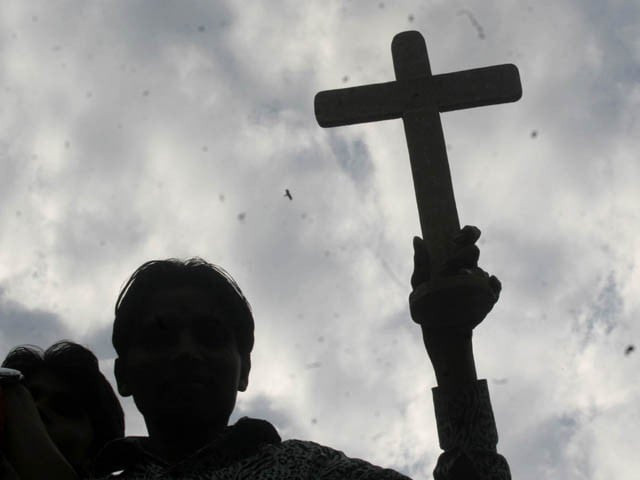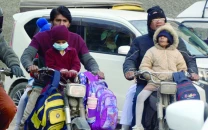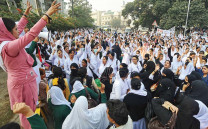Fighting for equality: ‘Minorities have equal rights as rest of citizens’
Activists demand implementation of 2014 SC judgment.

Activists demand implementation of 2014 SC judgment. PHOTO ATHAR KHAN/EXPRESS
"No right of the minority can be taken. They are equal citizens of the state. Also the [2014] judgment calls for implementation of five per cent quota, and directs that no Muslim can be appointed [in place of minorities]," said Advocate Nisar Ahmed Shar.
He was speaking at an awareness seminar, titled 'Minority Rights: Challenges in Implementation of Supreme Court's Judgment', organised by Pakistan Institute of Labour Education and Research (PILER). The event was held at Regent Plaza on Tuesday.
Equality for all: Organisation formed to protect rights of minorities
Aurat Foundation resident director Mahnaz Rahman said that when cases of minorities come up, lawyers and judges are scared to deal with them. The state and religion should be separated from one another, she remarked, adding that government should take steps so that the law is equal for everyone and ensure that non-minorities are given their rights.

Activist Adam Malik appreciated the National Action Plan (NAP), but regretted that it was never implemented.
Regarding the aspects covering minorities, he said that the NAP calls for formation of the national commission for minorities and the police to be deployed outside various places of worship.
Malik said that the special programmes for minorities including for their welfare should be introduced. The NAP also calls for VVIPs, dignitaries and parliamentarians to participate in the festivals of minorities, he added. Haq Nawaz of the Karachi Bar Association said the Constitution does not discriminate between minorities and the majority. But in the society, especially after the Zia regime, there been a surge in this discrimination, he claimed.
He also recalled an anecdote from his childhood, when he would eat 'prasad' from the Guru Nanak temple. However, this is not possible today, he lamented.
PILER executive director Karamat Ali also spoke during the event.
Published in The Express Tribune, June 1st, 2016.


















COMMENTS
Comments are moderated and generally will be posted if they are on-topic and not abusive.
For more information, please see our Comments FAQ